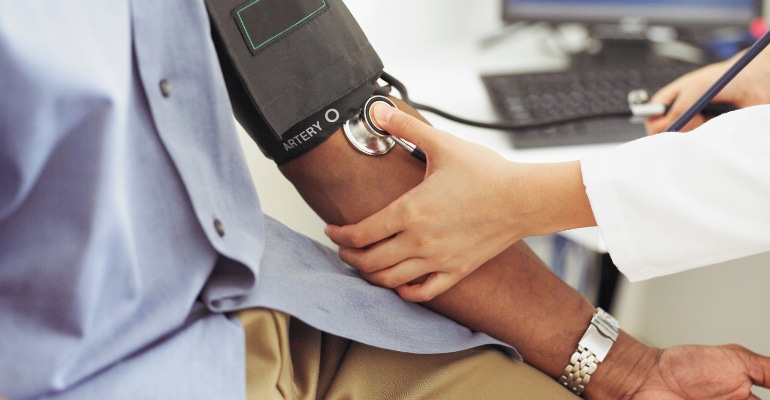FDA Approves Renal Denervation for High Blood Pressure
The approval is a significant milestone in hypertension (high blood pressure) treatment in the United States.
November 8, 2023

U.S. physicians finally have a new option for treating high blood pressure (hypertension) that remains inadequately controlled despite medication and lifestyle changes.
FDA approved the Recor Medical's Paradise ultrasound renal denervation (RDN) system. The Palo Alto, CA-based company's RDN system is designed to lower blood pressure by denervating the sympathetic nerves surrounding the renal arteries, reducing the overactivity that can lead to hypertension. The Paradise system is designed delivers two to three doses of 360-degree ultrasound energy — lasting seven seconds each — through each of the main renal arteries to the surrounding nerves. The Paradise catheter features the company's HydroCooling system, which circulates sterile water through the balloon catheter during the procedure to help protect the renal artery wall.
The approval isn't a huge surprise, given the positive FDA advisory committee vote in August. But it does sprinkle some proverbial salt in Medtronic's renal denervation wounds. Just one day after voting in favor of approving the Paradise system, the same panel voted against Medtronic's renal denervation system.
Earlier this year, results from Recor’s U.S. pivotal study, the RADIANCE II randomized trial, were published in the Journal of the American Medical Association (JAMA). In the study, Recor's renal denervation system met both the primary safety and effectiveness endpoints without any major adverse events.
“Recor is leading the way in bringing an innovative solution to clinicians and their patients struggling to control blood pressure. This FDA approval is the culmination of years of technical research and rigorous clinical studies,” said Recor CEO Lara Barghout. “We are grateful to the patients who participated in the studies and to the clinical trial investigator teams whose diligence and dedication made FDA approval possible. We look forward to making this technology available to physicians and their patients nationwide.”
Recor has been developing the Paradise renal denervation system for the treatment of hypertension since 2009. The RADIANCE global program studied the Paradise system in three independently powered, sham-controlled, randomized trials in more than 500 patients with uncontrolled hypertension: RADIANCE II and RADIANCE-HTN SOLO, which studied patients with mild-moderate hypertension in an “off-meds” setting, and RADIANCE-HTN TRIO, which studied patients with resistant hypertension on standardized triple antihypertensive therapy. Each trial met its prescribed primary efficacy endpoint with a favorable safety profile consistently observed following ultrasound RDN treatment.
“Despite the longstanding availability of dozens of affordable anti-hypertensive medications, blood pressure control rates in the United States are alarmingly low and falling. Given the significant blood pressure reductions seen in the ultrasound renal denervation trials, the Paradise ultrasound renal denervation system offers a much-needed advancement in our currently available options to control hypertension,” said site principal investigator Naomi Fisher, MD, an associate professor of medicine at Harvard Medical School, and director of hypertension Sservice and hypertension innovation for the division of endocrinology, diabetes, and hypertension at Brigham and Women’s Hospital. “uRDN has proven efficacy in patients with truly resistant hypertension, a population for whom medication therapy often fails. It is also effective in patients with mild to moderate hypertension who cannot tolerate enough medication to control their blood pressure.”
The Paradise system has already been introduced in Europe under CE mark and is an investigational device in Japan.
About the Author(s)
You May Also Like



.png?width=300&auto=webp&quality=80&disable=upscale)
